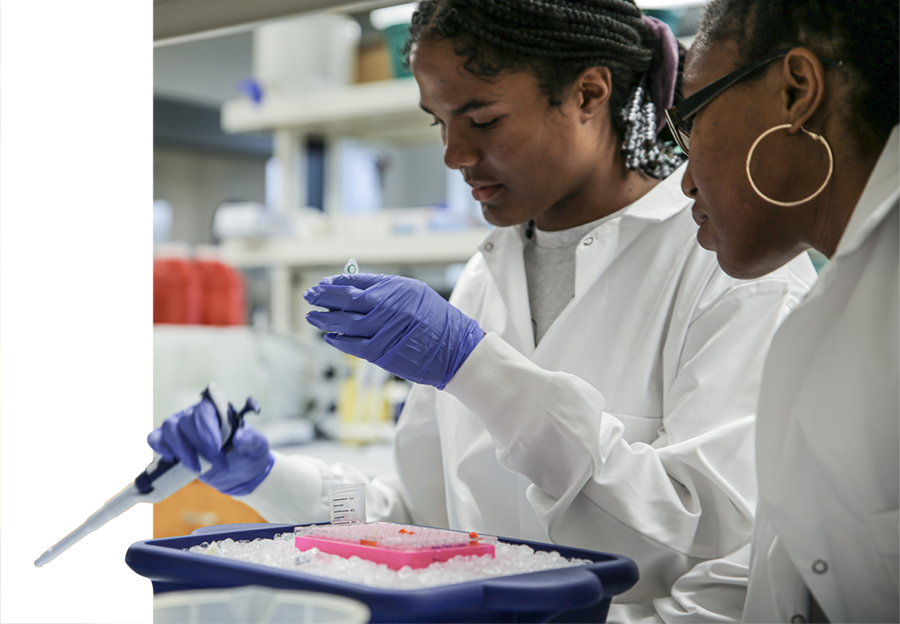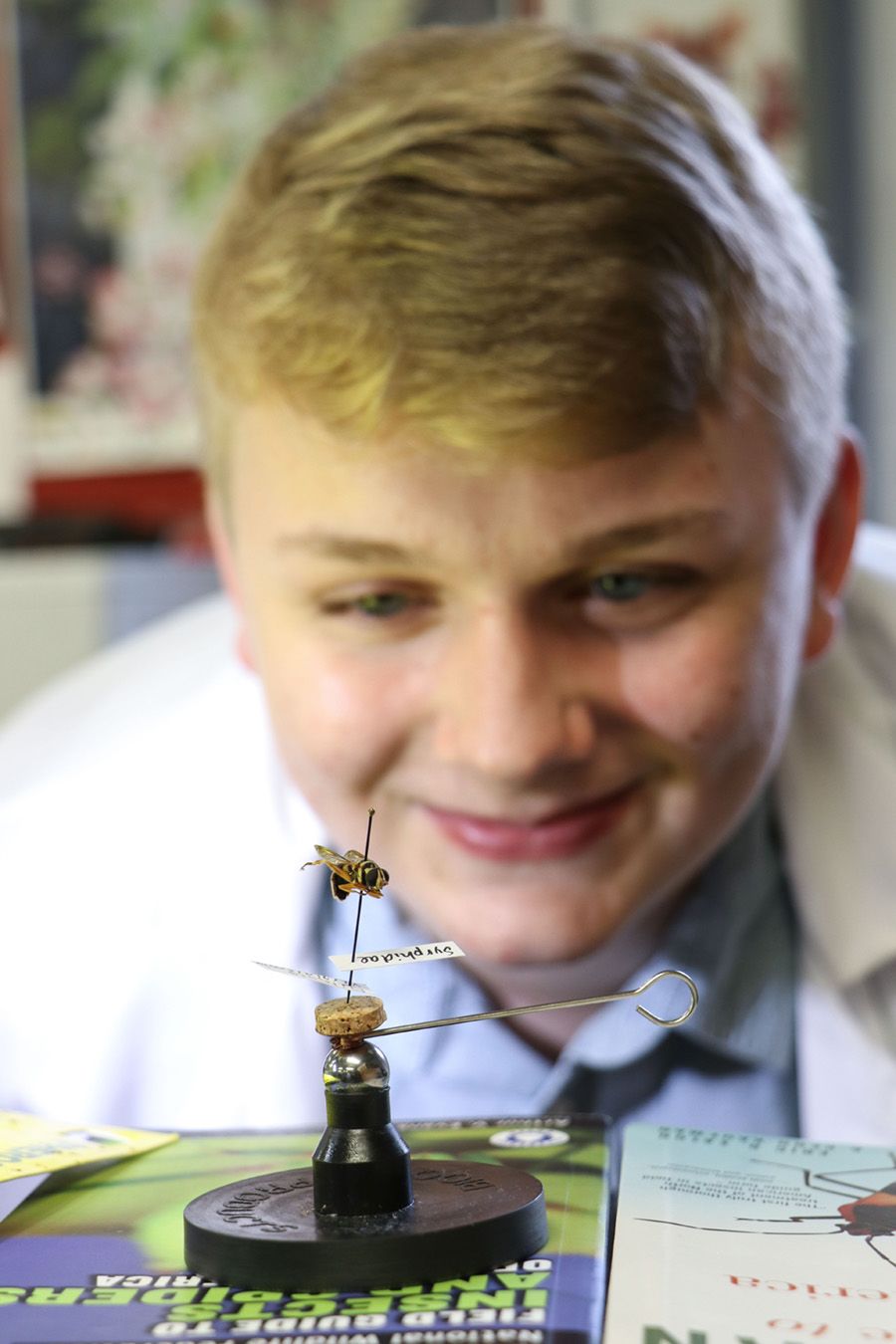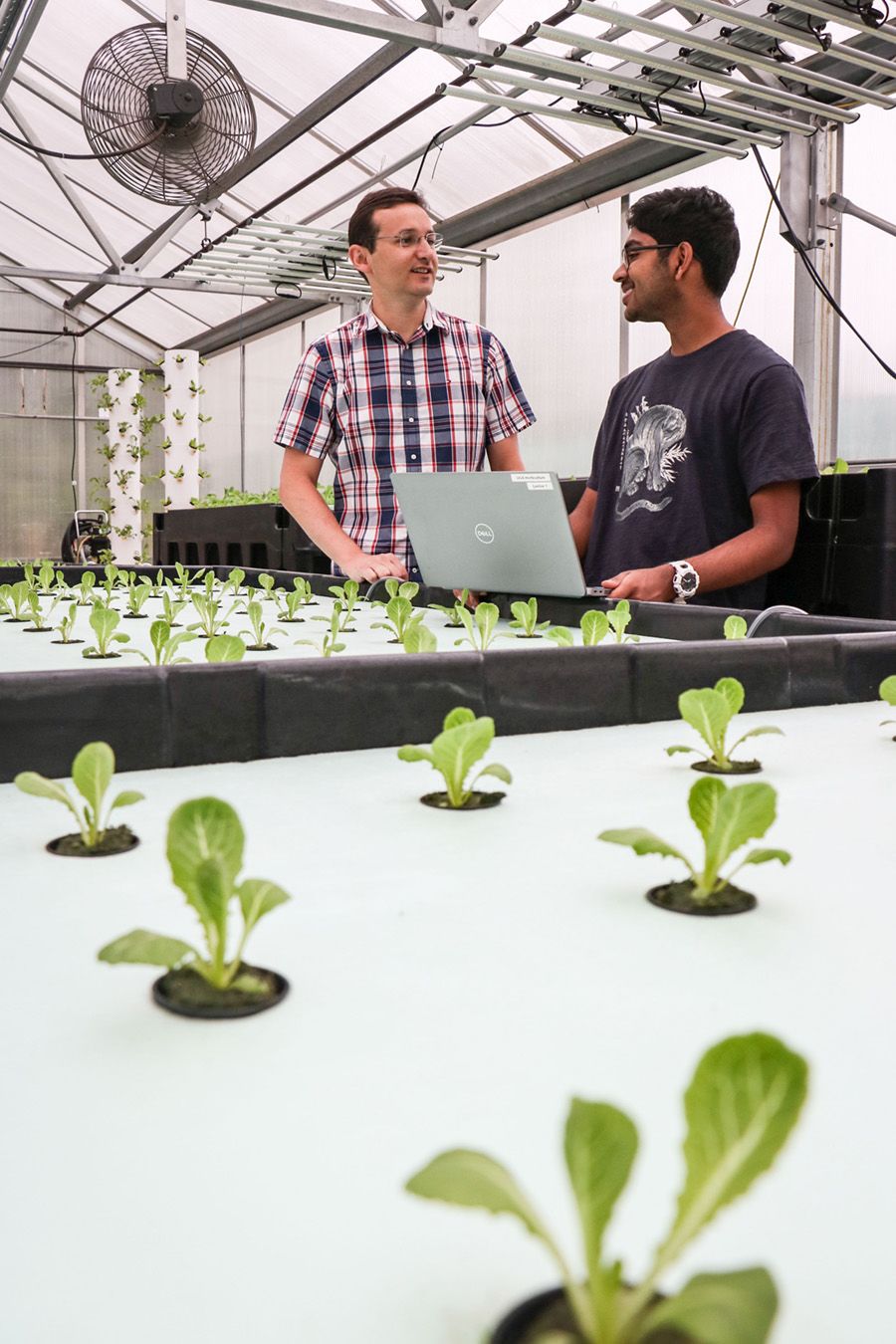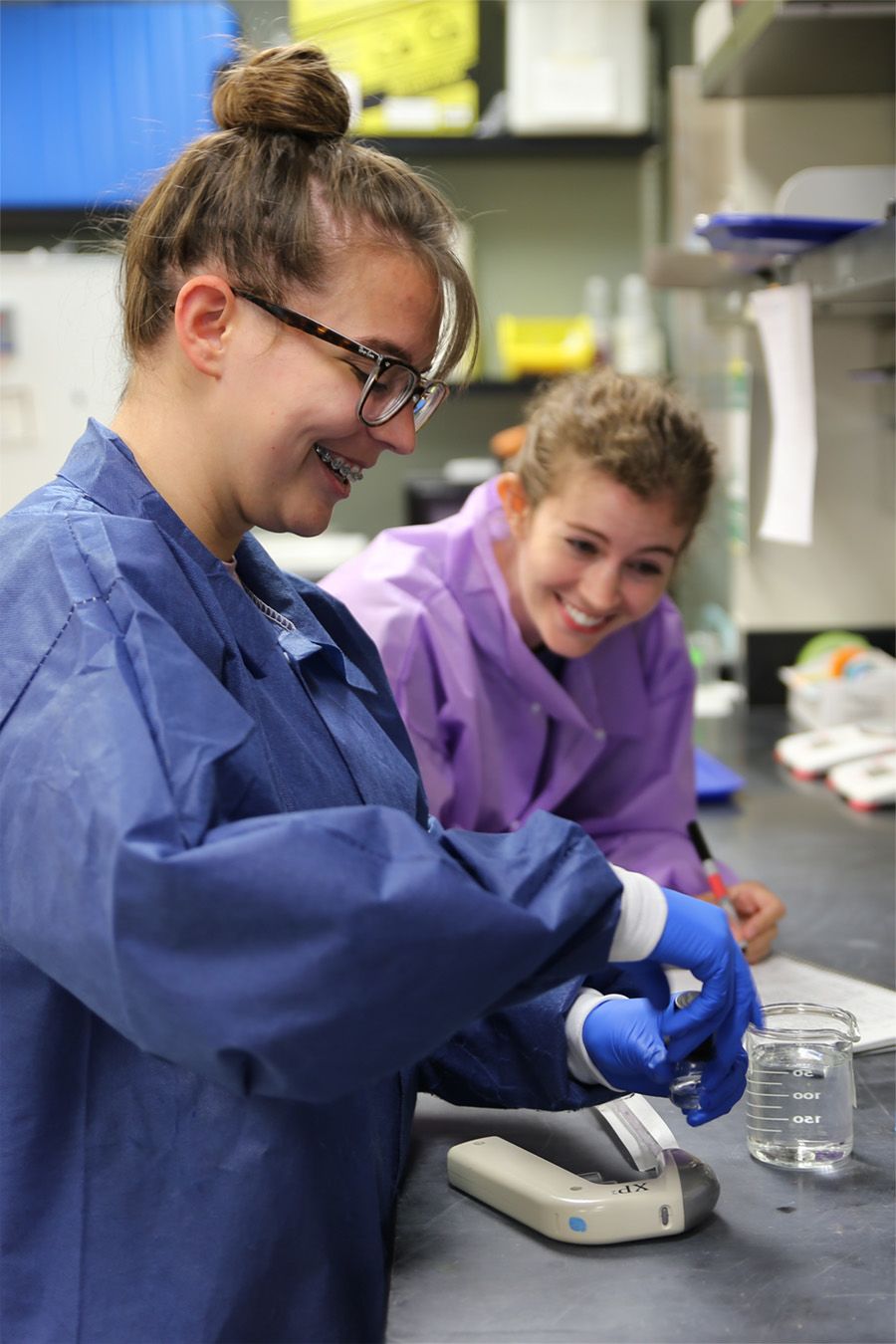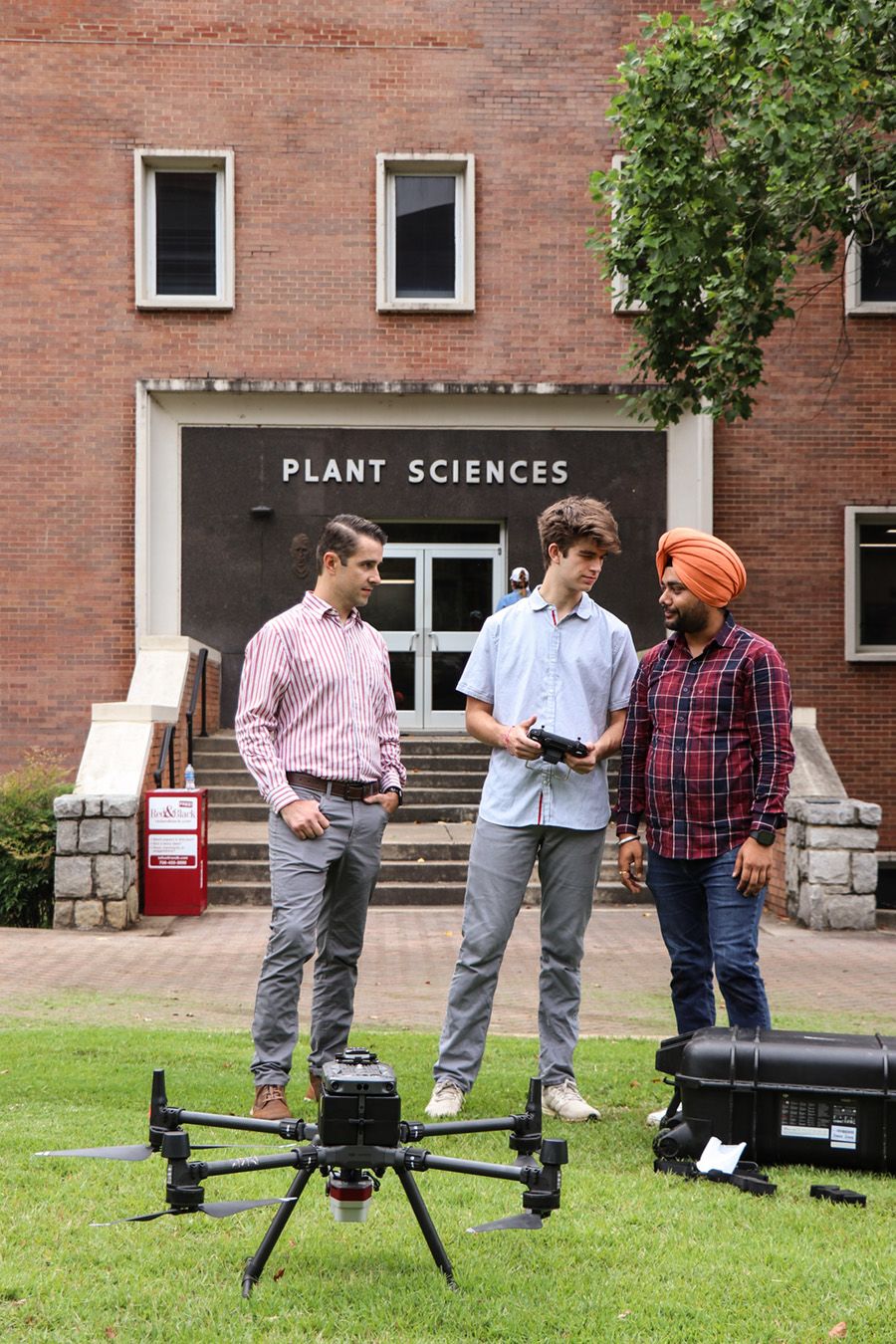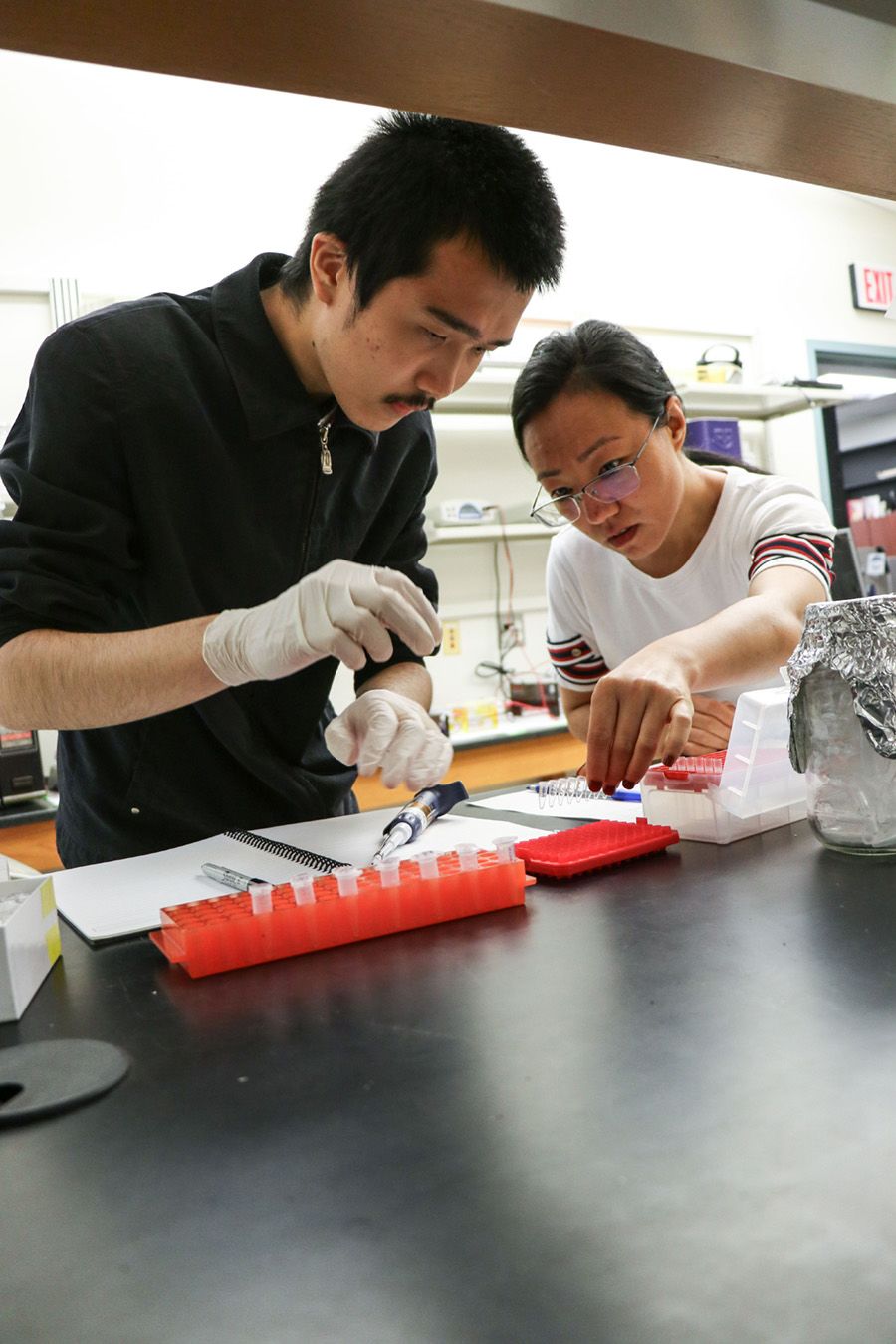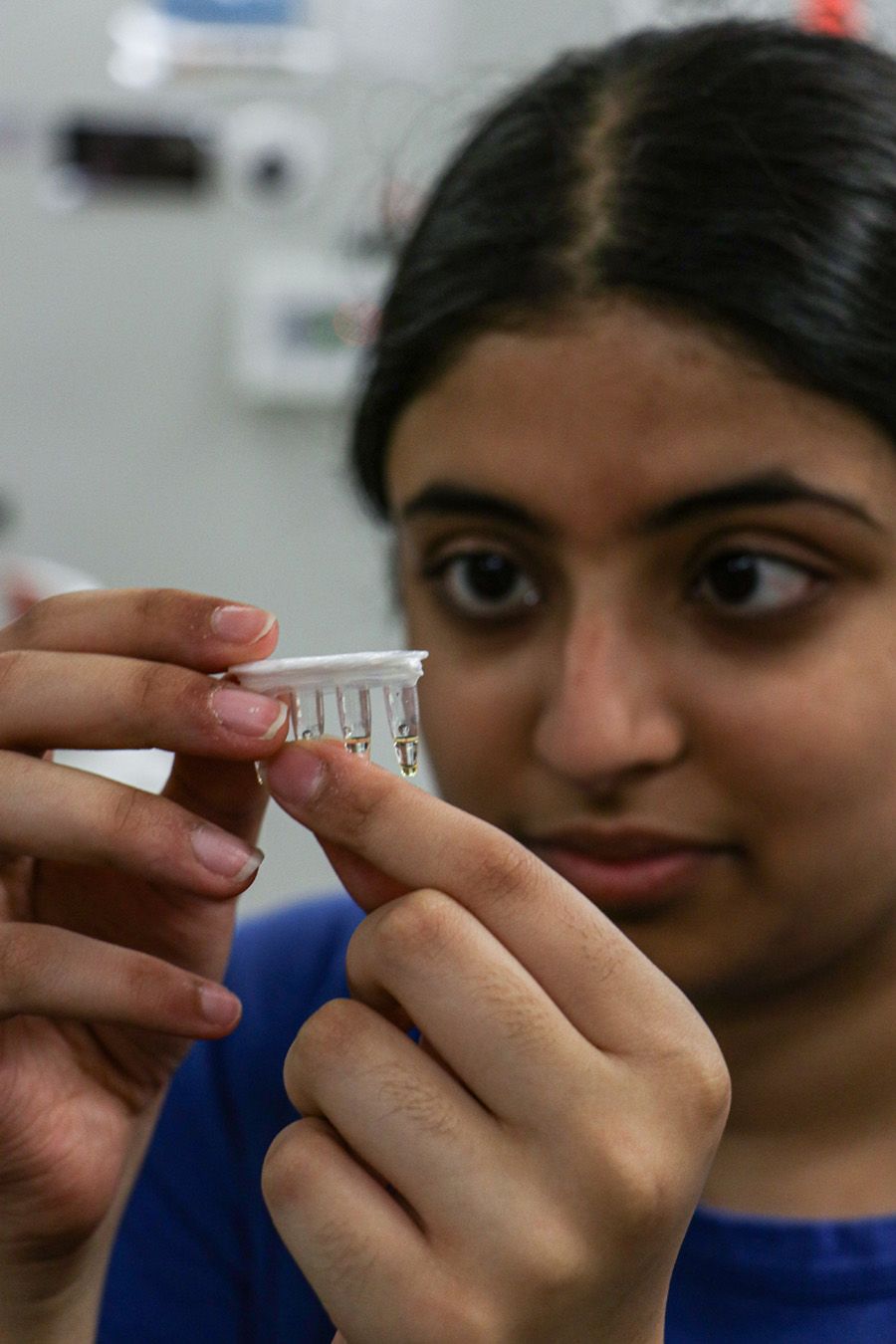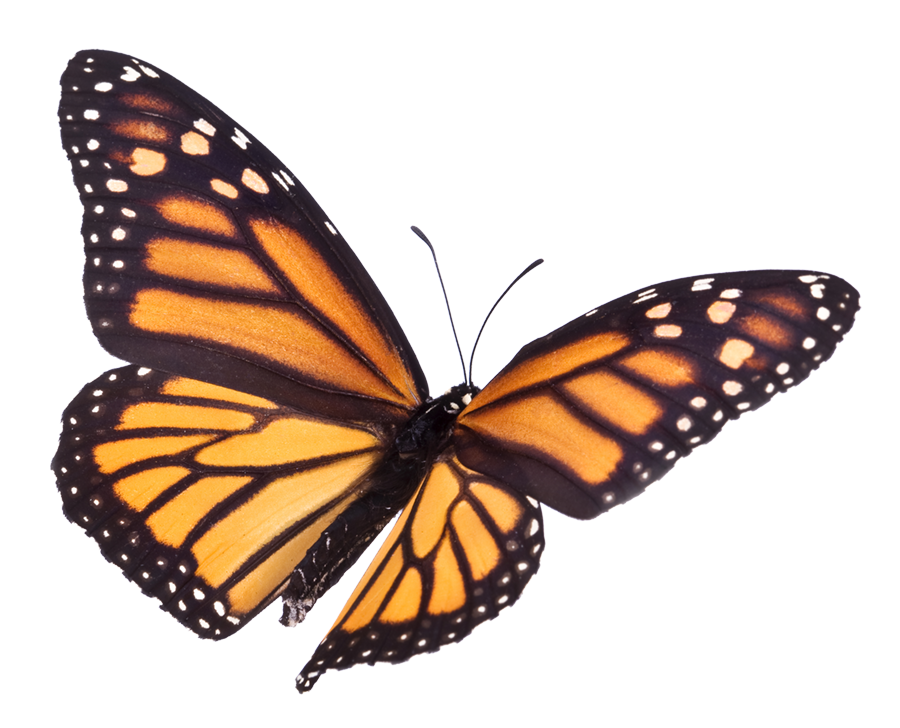Young Scholar Keela Boyce evaluates cytokine mRNA in the poultry disease histomoniasis.
Young Scholar Keela Boyce evaluates cytokine mRNA in the poultry disease histomoniasis.
Nurturing Talent
CAES scientists guide high school students on the way to science careers
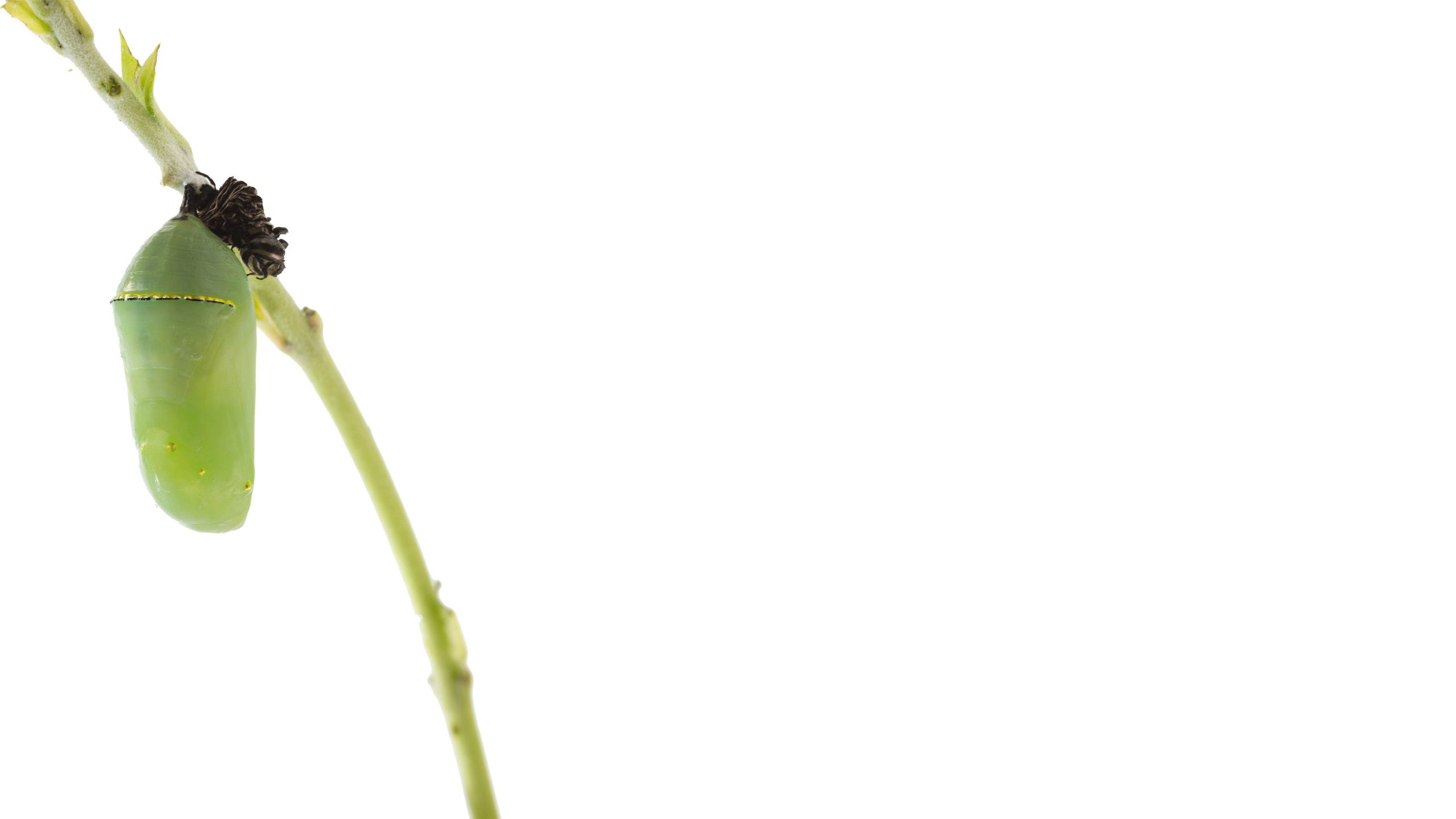
Early education opportunities that place students in the driver’s seat of hands-on field research can have infinite impacts, launching students on academic and career paths with immeasurable advantages. High school students interested in learning more about agricultural, food and environmental sciences are experiencing the once-in-a-lifetime opportunity to grow as researchers thanks to the University of Georgia’s Young Scholars Program (YSP).
YSP is a six-week paid summer internship through the College of Agricultural and Environmental Sciences that invites students to learn alongside world-renowned research scientists, offering mentorship and real-world experiences ranging from lab and field research to analysis and data collection. The program culminates with the Young Scholars Pre-Collegiate Research Conference, a three-day event where Young Scholars present their research findings and learn more about the UGA community.
“It’s an opportunity to get students out of their bubble,” said YSP participant Elon Brown. “I had specific ideas of what to study in school and what types of jobs I could get. But the program really was life-changing because it not only showed all that UGA has to offer, but it opened my eyes to different career fields I can go into.”
Brown, a senior at Eagle’s Landing Christian Academy in McDonough, Georgia, studied turfgrass and conducted research at UGA’s Griffin campus, exploring the impact of different types of grass on the agricultural landscape. “But I think it goes beyond research,” said Brown. “I’m in high school, and the work was college-level. We were learning how to communicate and present our work so anyone could understand it.”
Young Scholar Max Draughn examines a Syrphid fly specimen in Associate Professor Brett Blaauw’s entomology lab in June 2022.
Young Scholar Max Draughn examines a Syrphid fly specimen in Associate Professor Brett Blaauw’s entomology lab in June 2022.
Rhuanito Ferrarezi, associate professor of horticulture, and Young Scholar Saahas Swaroop use multiple cameras capable of measuring depth, thermal, spectral and color information to predict lettuce growth under greenhouse condition on UGA’s Athens campus in June 2023.
Rhuanito Ferrarezi, associate professor of horticulture, and Young Scholar Saahas Swaroop use multiple cameras capable of measuring depth, thermal, spectral and color information to predict lettuce growth under greenhouse condition on UGA’s Athens campus in June 2023.
Olivia Hawkins and postdoctoral researcher Anna Townsend study the change in chlorine and peroxyacetic acid sanitizer concentrations over time and in various conditions and bottle types.
Olivia Hawkins and postdoctoral researcher Anna Townsend study the change in chlorine and peroxyacetic acid sanitizer concentrations over time and in various conditions and bottle types.
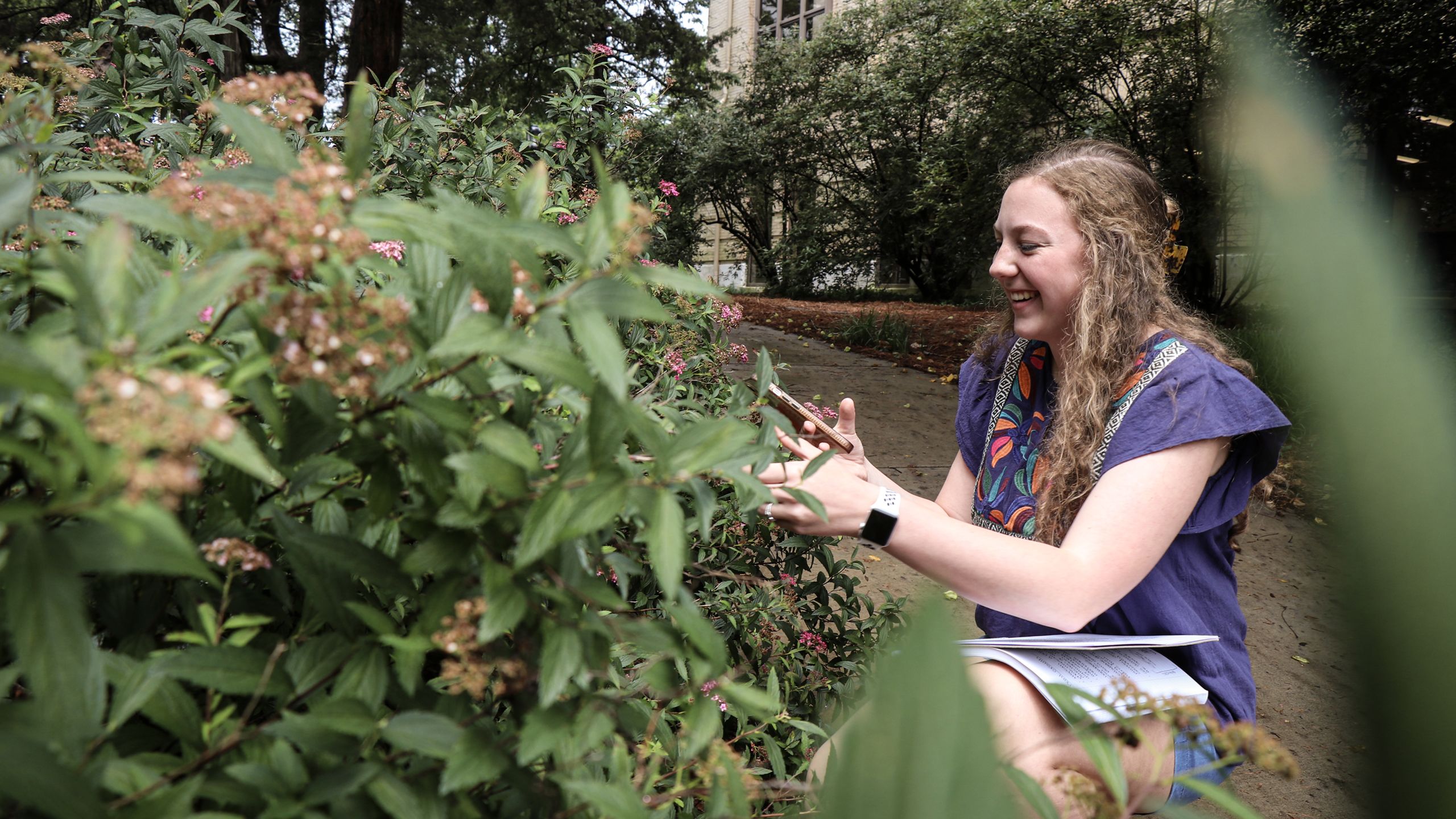
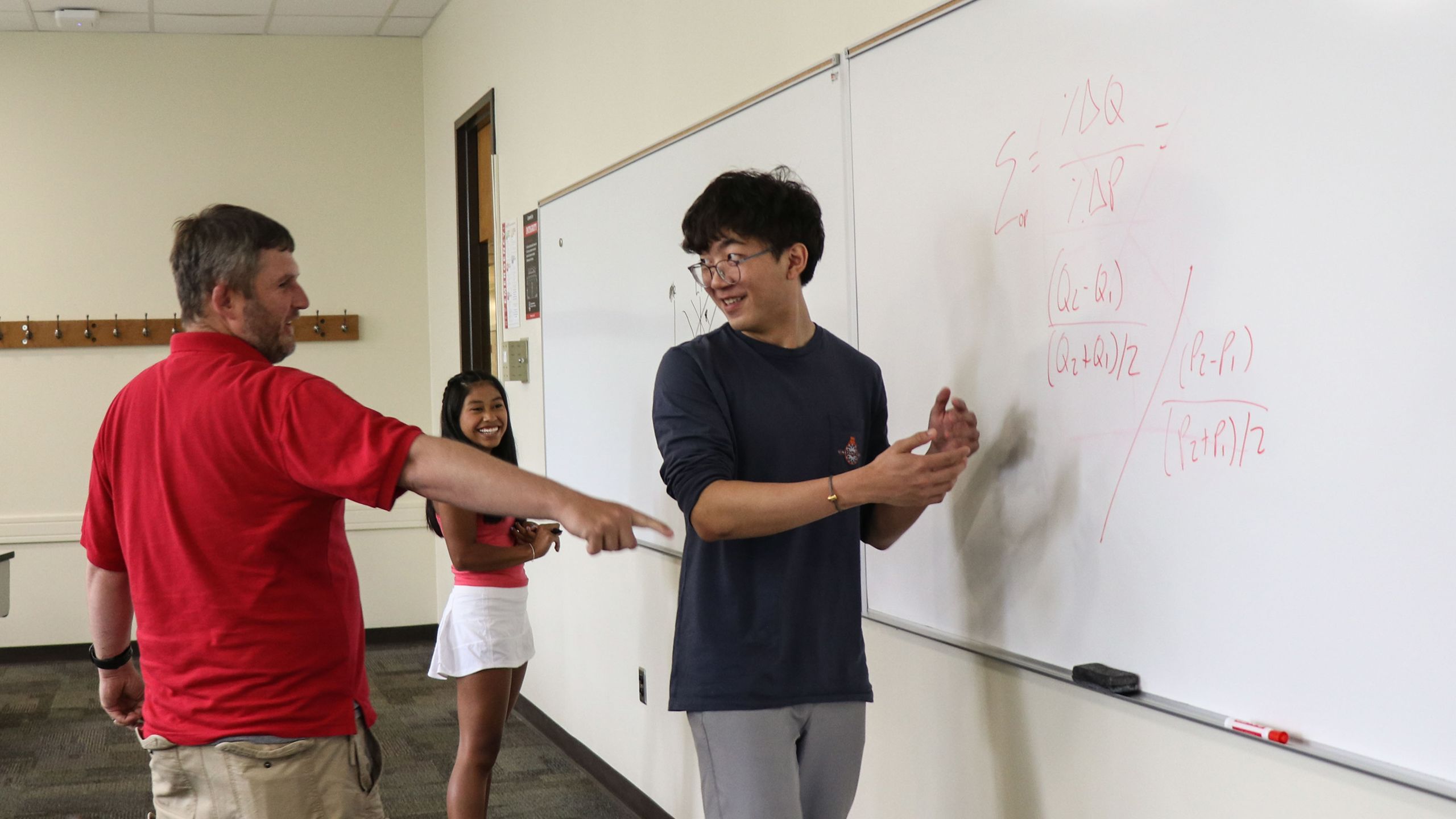
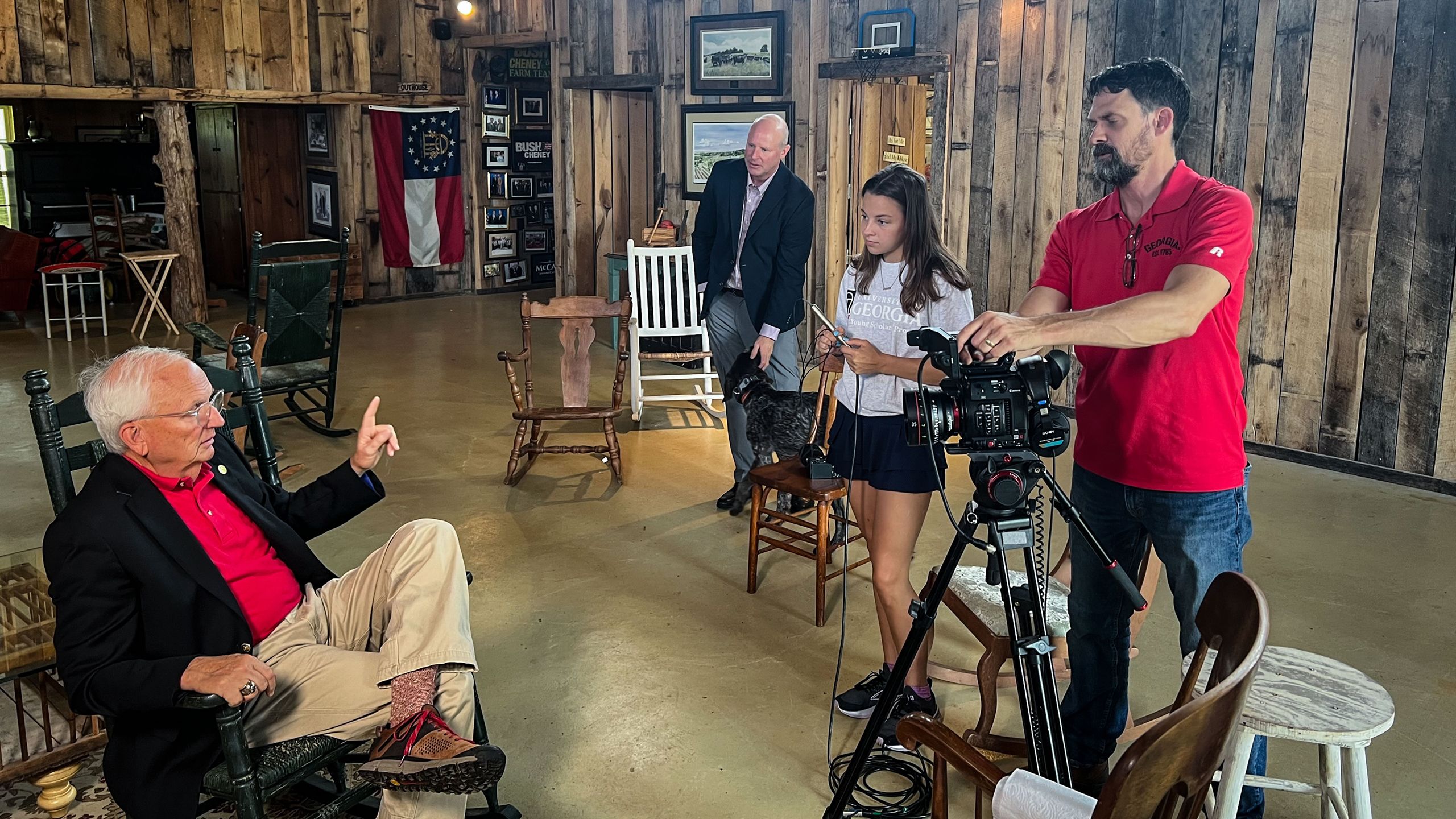
In June 2023, Leonardo Bastos, assistant professor in integrative precision agriculture for the Department of Crop and Soil Sciences, Young Scholar Clayton Bivins and Amrinder Jakhar, graduate student in agronomy and precision agriculture, examine a drone and sensors used to detect crop stress related to nutrition. The data collected from the drone and sensors are modeled to recommend fertilizer rates that better match crop needs and avoid excessive application. This ensures that crops produce optimum yields, less fertilizer is lost to the environment, and growers are more profitable.
In June 2023, Leonardo Bastos, assistant professor in integrative precision agriculture for the Department of Crop and Soil Sciences, Young Scholar Clayton Bivins and Amrinder Jakhar, graduate student in agronomy and precision agriculture, examine a drone and sensors used to detect crop stress related to nutrition. The data collected from the drone and sensors are modeled to recommend fertilizer rates that better match crop needs and avoid excessive application. This ensures that crops produce optimum yields, less fertilizer is lost to the environment, and growers are more profitable.
With the guidance of Lei Zhang, postdoctoral researcher at the Center for Applied Genetic Technologies, Young Scholar Jia Chai prepares to clone a CRISPR/Cas9 construct. The gene editing tool will be used to knock out a gene that produces volatile compounds in tomato plants.
With the guidance of Lei Zhang, postdoctoral researcher at the Center for Applied Genetic Technologies, Young Scholar Jia Chai prepares to clone a CRISPR/Cas9 construct. The gene editing tool will be used to knock out a gene that produces volatile compounds in tomato plants.
Young Scholar Venya Gunjal prepares allicin precursors in a tube. Allicin is a compound from garlic that is similar to compounds in onions that may help fight fungal and bacterial pathogens in onions. Click on the photo to read more about Gunjal, who is also Georgia's state 4-H president, in Cultivate.
Young Scholar Venya Gunjal prepares allicin precursors in a tube. Allicin is a compound from garlic that is similar to compounds in onions that may help fight fungal and bacterial pathogens in onions. Click on the photo to read more about Gunjal, who is also Georgia's state 4-H president, in Cultivate.
The program is more than an opportunity for students to grow as researchers. YSP also enables program mentors to engage with their fields of study in new ways while reinvigorating their passion for research.
“Bugs are one of those areas that, once kids get to a certain age, they lose interest,” said Brett Blaauw, a YSP faculty mentor and associate professor of entomology at CAES. “The field of entomology, specifically through an agricultural lens, is so important, but students often don’t see anything beyond creepy-crawly things.”
Sharing the critical role of entomology in agriculture and beyond is an opportunity to increase students’ awareness and, hopefully, grow the field.
“Getting this experience creates pathways into fields that can impact a student’s life and, ultimately, impact the world around us,” said Blaauw, who helps students pilot projects exploring pest management and beneficial insect conservation as a tool to enhance agricultural landscapes.
Kirsten Flinn participated in the program during the summers of both her junior and senior years. Now a senior at CAES, she works in the entomology lab she first studied in as a Young Scholar.
“I am taking a little bit of a more nontraditional path through CAES because I actually hope to go into law,” said Flinn. “Even though I won’t be working in the traditional field of agricultural academia, having that research experience is important for a lot of fields, including the legal field. Also, being able to be involved in research of my own at such a young age really carried me through my undergrad experience because I did have those experiences while still in high school.”
For other students, YSP helps them realize lifelong dreams. Jarrett Hancock, a current high school senior and former YSP participant from Irwinville, Georgia, always wanted to pursue a career in agriculture and the program helped him focus his goals.
“It made me rethink my ideas about my goals for college and made me rethink my eventual career,” said Hancock. “I knew about agriculture, of course, but because of the program, I now know specifically I want to look at precision agriculture as a career and study in a program related to it.”
Hancock said his mentor during the six-week program made his time as an intern much more exciting by explaining the “why” behind the work they were doing and the large-scale agricultural impact the projects could ultimately have.
“My project during the program was about the potential of high-resolution aerial imagery for site-specific weed management in row crops,” said Hancock. “We used technology to reduce the amount of chemicals used in the field by around 45%. Those results make a real difference.”
The impact of YSP is clear — in the accomplishment students feel in conducting research and completing in-depth projects, in the ultimate success students experience as they embark on their collegiate careers and beyond, and in the rippling effect of positive change YSP participants have on the world around them.
YSP participant Richard Wang, who attends Starr’s Mill High School in Peachtree City, Georgia, explained it this way: “At a time when our sustainability and environmental impact is critical, sparking a new passion in students for scientific research can change our world for the better.”
Did you enjoy this story?
Check out recent issues of the Almanac for more great stories like this one.

